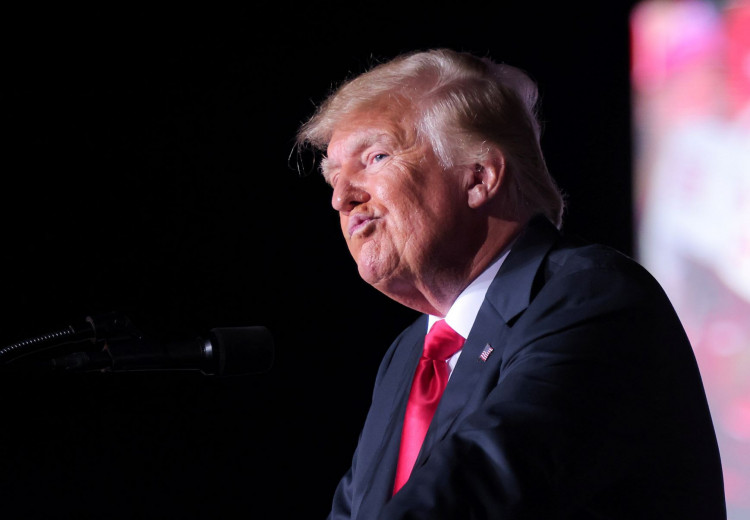President Donald Trump turned a diplomatic meeting with South African President Cyril Ramaphosa into a contentious Oval Office confrontation Wednesday, pressing unsubstantiated claims of a "white genocide" and playing video clips to support his narrative. The meeting, intended to focus on trade and investment, quickly veered into controversy as Trump dimmed the lights and presented what he described as evidence of violence against white South African farmers.
"I don't know, all of these are articles over the last few days - death of people, death, death, death, horrible death," Trump said, holding up printed media clippings in front of cameras. "This is sort of the opposite of apartheid."
Ramaphosa, visibly caught off guard, pushed back. "There is criminality in our country. People who do get killed, unfortunately, through criminal activity are not only white people - majority of them are Black people," he said. "There is just no genocide in South Africa."
The clash was part of a carefully choreographed Oval Office setup, complete with rolling in large TV monitors just before Ramaphosa entered. According to South African presidential spokesperson Vincent Magwenya, the video compilation shown was a "poor compilation of old videos" and a "complete lie."
Trump's assertions were amplified by Elon Musk, a South African-born billionaire and adviser to the administration, who has echoed similar claims. Musk was present at the meeting but did not speak. "Elon is from South Africa. I don't want to get him involved," Trump said. "This is what Elon wanted."
The claims made by Trump centered around land reform legislation in South Africa, which allows the government to expropriate land for public interest, a move Ramaphosa said is aligned with global standards for eminent domain. Trump, however, issued an executive order in February titled "Addressing Egregious Actions of the Republic of South Africa," alleging the government had authorized the seizure of land from ethnic Afrikaners without compensation.
The executive order paused U.S. aid to South Africa and fast-tracked the resettlement of dozens of white Afrikaner refugees, a move criticized by immigration advocates and Democrats as discriminatory. "I think that the United States has a right to allow into this country and prioritize the allowance of who they want to allow it come in," Secretary of State Marco Rubio told a Senate panel when asked to justify the policy.
During the Oval Office meeting, Trump showed no interest in pivoting to trade, despite Ramaphosa's repeated attempts. "We require more investment from the United States and we require a more positive disposition from the United States," Ramaphosa said, trying to steer the conversation toward economic matters.
Asked what he wanted South Africa to do, Trump replied, "I don't know."
Trump's remarks echo years of fringe claims he promoted during his first term, amplified in conservative media circles but widely debunked by mainstream investigations, including by CNN and international human rights groups. Experts note that while South Africa does experience high levels of violent crime, the claim of targeted killings or "genocide" against white farmers lacks statistical or legal foundation.
As part of the display, Trump played footage of South African opposition figure Julius Malema, known for inflammatory rhetoric, and presented it as reflective of official government policy - a claim Ramaphosa firmly rejected. "What you saw in the speeches that were being made - that is not government policy. We have a multiparty democracy in South Africa that allows people to express themselves," Ramaphosa said.
Following the encounter, Ramaphosa told reporters: "The issue of whether what he terms as genocide can be equated to the struggle... it cannot, because there is just no genocide in South Africa."
White House aides swiftly posted the video Trump aired and circulated the articles shown in the meeting on official social media channels, indicating a deliberate effort to control the post-meeting narrative. Trump supporters applauded the spectacle, seeing it as a moment of accountability for foreign leaders.






